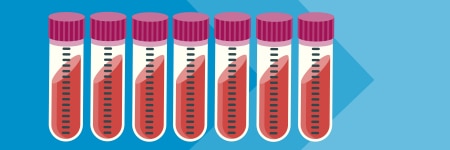
Towards genomic equity
To advance genomics in healthcare, we must consider both the data we collect and who we collect it from. Here, bioinformatician Nana E. Mensah explains why

Haplotypes: a cut-out-and-keep guide
Although ‘haplo' means 'simple', the science can be anything but. Find out what’s hap-pening with haplotypes in our guide

Transcriptomics and mental illness
We look beyond the genome to find out how RNA can impact on the presentation of psychiatric conditions

Genomic test supports next-generation cancer drugs
Promising new cancer treatments are emerging, but how does genomics help us identify the patients who need them?

NHS to trial new multi-cancer blood test
More than 50 different types of cancer can be detected by the new test, but how will it work?

The importance of diversity in genomic datasets
We look at a recent prostate cancer study that highlights the importance of inclusivity in genomic studies

What is genomic imprinting?
We explore one type of epigenetic modification, its function in our genome and the rare conditions that have been linked to it

Filling the gaps: sequencing a chromosome
A human chromosome has been sequenced in its entirety for the first time, but why is this breakthrough important for the future of our reference genome?

Prenatal genomics - an overview
What role can genomics play before a baby is born? We break down the screening and testing options available now – from traditional methods to new technologies

Richter’s syndrome study published
A new study by GEP fellow Niamh Appleby has found potential pathways and targets for the treatment of Richter’s syndrome – an aggressive form of adult leukaemia

Genomics and the new Covid-19 variant
What do we know about the new strain of coronavirus sweeping across the UK? And how did genomics help us get there?

Key genomic technologies of 2020: treatments old and new
In the second part of our review of the year’s genomic highlights, we look at the breakthroughs that are helping patients with rare disease and cancer


